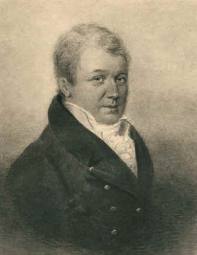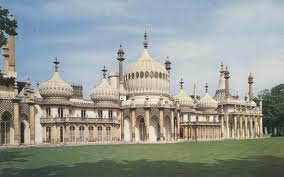 |
| Mrs. Fitzherbert |
Number One London’s 2019 Queen Victoria Tour will be visiting the Brighton Pavilion – find details here.
 |
| Mrs. Fitzherbert |
Number One London’s 2019 Queen Victoria Tour will be visiting the Brighton Pavilion – find details here.
“I suppose the Courts or houses of Princes are all alike in one thing, viz., that in attending them you lose your liberty. After one month was gone by, you fell naturally and of course into the ranks, and had to reserve your observations till you were asked for them. These royal invitations are by no means calculated to reconcile one to a Court. To be sent for half an hour before dinner, or perhaps in the middle of one’s own, was a little too humiliating to be very agreeable.
“. . . Lord Hutchinson* was a great feature at the Pavilion. He lived in the house, or rather the one adjoining it, and within the grounds. … As a military man he was a great resource at that time, as we were in the midst of expectations about the Austrians and Buonaparte, and the battle which we all knew would so soon take place between them. It was a funny thing to hear the Prince, when the battle had taken place, express the same opinion as was given in the London Government newspapers, that it was all over with the French—that they were all sent to the devil, and the Lord knows what. Maps were got out to satisfy everybody as to the precise ground where the battle had been fought and the route by which the French had retreated. While these operations were going on in one window of the Pavilion, Lord Hutchinson took me privately to another, when he put into my hand his own private dispatch from Gordon, then Secretary to the Commander-in-Chief, giving him the true account of the battle of Austerlitz, with the complete victory of the French. This news, unaccountable as it may appear, was repeated day after day at the Pavilion for nearly a week; and when the truth began at last to make its appearance in the newspapers, the Prince puts them all in his pockets, so that no paper was forthcoming at the Pavilion, instead of half-a-dozen, the usual number. . . . We used to dine pretty punctually at six, the average number being about sixteen. . . . Mrs. Fitzherbert always dined there, and mostly one other lady—Lady Downshire very often, sometimes Lady Clare or Lady Berkeley or Mrs. Creevey. Mrs. Fitzherbert was a great card-player, and played every night. The Prince never touched a card, but was occupied in talking to his guests, and very much in listening to and giving directions to the band. At 12 o’clock punctually the band stopped, and sandwiches and wine and water handed about, and shortly after the Prince made a bow and we all dispersed.
 |
| The 11th Duke of Norfolk |
“It used to be the Duke of Norfolk’s custom to come over every year from Arundel to pay his respects to the Prince and to stay two days at Brighton, both of which he always dined at the Pavilion. In the year 1804, upon this annual visit, the Prince had drunk so much as to be made very seriously ill by it, so that in 1805 (the year that I was there) when the Duke came, Mrs. Fitzherbert, who was always the Prince’s best friend, was very much afraid of his being again made ill, and she persuaded the Prince to adopt different stratagems to avoid drinking with the Duke. I dined there on both days, and letters were brought in each day after dinner to the Prince, which he affected to consider of great importance, and so went out to answer them, while the Duke of Clarence went on drinking with the Duke of Norfolk. But on the second day this joke was carried too far, and in the evening the Duke of Norfolk showed he was affronted. The Prince took me aside and said—’ Stay after everyone is gone tonight. The Jockey’s got sulky, and I must give him a broiled bone to get him in good humour again.’ So of course I stayed, and about one o’clock the Prince of Wales and Duke of Clarence, the Duke of Norfolk sat down a dinner of broiled bones.
* Brother of the 1st Earl of Donoughmore; a general officer, succeeded Sir Ralph Abercromby in command of the army in Egypt, and was raised to the peerage in 1801, with a pension of £2000. Died in 1832.
Part Three Coming Soon!
Number One London’s 2019 Queen Victoria Tour will be visiting the Brighton Pavilion – find details here.
Originally published April 2011
 |
| Thomas Creevey |
“It was in 1804 when I first began to take a part in the House of Commons, at which time the Prince of Wales was a most warm and active partizan of Mr. Fox and the Opposition. It was then that the Prince began first to notice me, and to stop his horse and talk with me when he met me in the streets; but I recollect only one occasion, in that or the succeeding year, that I dined at Carlton House, and that was with a party of the Opposition, to whom he gave various dinners during that spring. On that occasion Lord Dundas and Calcraft sat at the top and bottom of the table, the Prince in the middle at one side, with the Duke of Clarence next to him; Fox, Sheridan and about 30 opposition members of both Houses making the whole party. We walked about the garden before dinner without our hats.
“The only thing that made an impression upon me in favour of the Prince that day (always excepting his excellent manners and appearance of good humour) was his receiving a note during dinner which he flung across the table to Fox and asked if he must not answer it, which Fox assented to; and then, without the slightest fuss, the Prince left his place, went into another room and wrote an answer, which he brought to Fox for his approval, and when the latter said it was quite right, tne Prince seemed delighted, which I thought very pretty in him, and a striking proof of Fox’s influence over him.
 |
| George IV as Prince of Wales by Reynolds |
“During dinner he was very gracious, funny and agreeable, but after dinner he took to making speeches, and was very prosy as well as highly injudicious. He made a long harangue in favour of the Catholics and took occasion to tell us that his brother William and himself were the only two of his family who were not Germans—this too in a company which was, most of them, barely known to him. Likewise I remember his halloaing to Sir Charles Bamfyld at the other end of the table, and asking him if he had seen Mother Windsor lately. I brought Lord Howick and George Walpole home at night in my coach, and so ended that day.
 |
| The Royal Pavilion, Brighton |
“. . . Immediately after this first visit from Mrs. Fitzherbert, Mrs. Creevey and her daughters became invited with myself to the Prince’s parties at the Pavilion, and till the first week in January—a space of about four months—except a few days when the Prince went to see the King at Weymouth, and a short time that I was in London in November, there was not a day we were not at the Pavilion, I dining there always once or twice a week, Mrs. Creevey frequently dining with me likewise, but in the evening we were always there.
“During these four months the Prince behaved with the greatest good humour as well as kindness to us all. He was always merry and full of his jokes, and any one would have said he was really a very happy man. Indeed I have heard him say repeatedly during that time that he never should be so happy, when King, as he was then.
Part Two Coming Soon!
Number One London’s 2019 Queen Victoria Tour will be visiting the Brighton Pavilion – find details here.
 |
| Admiral Lord Nelson (29 September 1758 – 21 October 1805) |
Marianne Spencer-Stanhope to John Spencer-Stanhope.
 |
| Vice Admiral Cuthbert Collingwood |
A Letter from Mrs. Fitzherbert to Mrs. Creevey.
 |
| The Prince of Wales, afterwards King George IV |
Correspondence from Mrs. Creevey to Mr. Creevey.
 |
| Emma, Lady Hamilton |
Originally published October 21, 2011
From The Creevey Papers
October 23rd. (1837) —Since August 30th, nearly two months, I have written not a line, for I have had nothing to record of public or general interest, and have felt an invincible repugnance to write about myself or my own proceedings. Having nothing else to talk of, however, I shall write my own history of the last seven weeks, which is very interesting to me inasmuch as it has been very profitable. Having asked George Bentinck to try my horse ‘Mango’ before Doncaster, we went down together one night to Winchester race-course and saw him tried. He won the trial and we resolved to back him. This we accomplished more successfully than we expected, and ten days after he won the St. Leger, and I won about 9,000Z. upon it, the first great piece of good fortune that ever happened to me. Since Doncaster, I have continued (up to this time) to win at Newmarket, so that my affairs are in a flourishing condition, but, notwithstanding these successes, I am dissatisfied and disquieted in my mind, and my life is spent in the alternations of excitement from the amusement and speculation of the turf and of remorse and shame at the pursuit itself. One day I resolve to extricate myself entirely from the whole concern, to sell all my horses, and pursue other occupations and objects of interest, and then these resolutions wax faint, and I again find myself buying fresh animals, entering into fresh speculations, and just as deeply engaged as ever. It is the force of habit, a still unconquered propensity to the sport, and a nervous apprehension that if I do give it up, I may find no subject of equal interest.